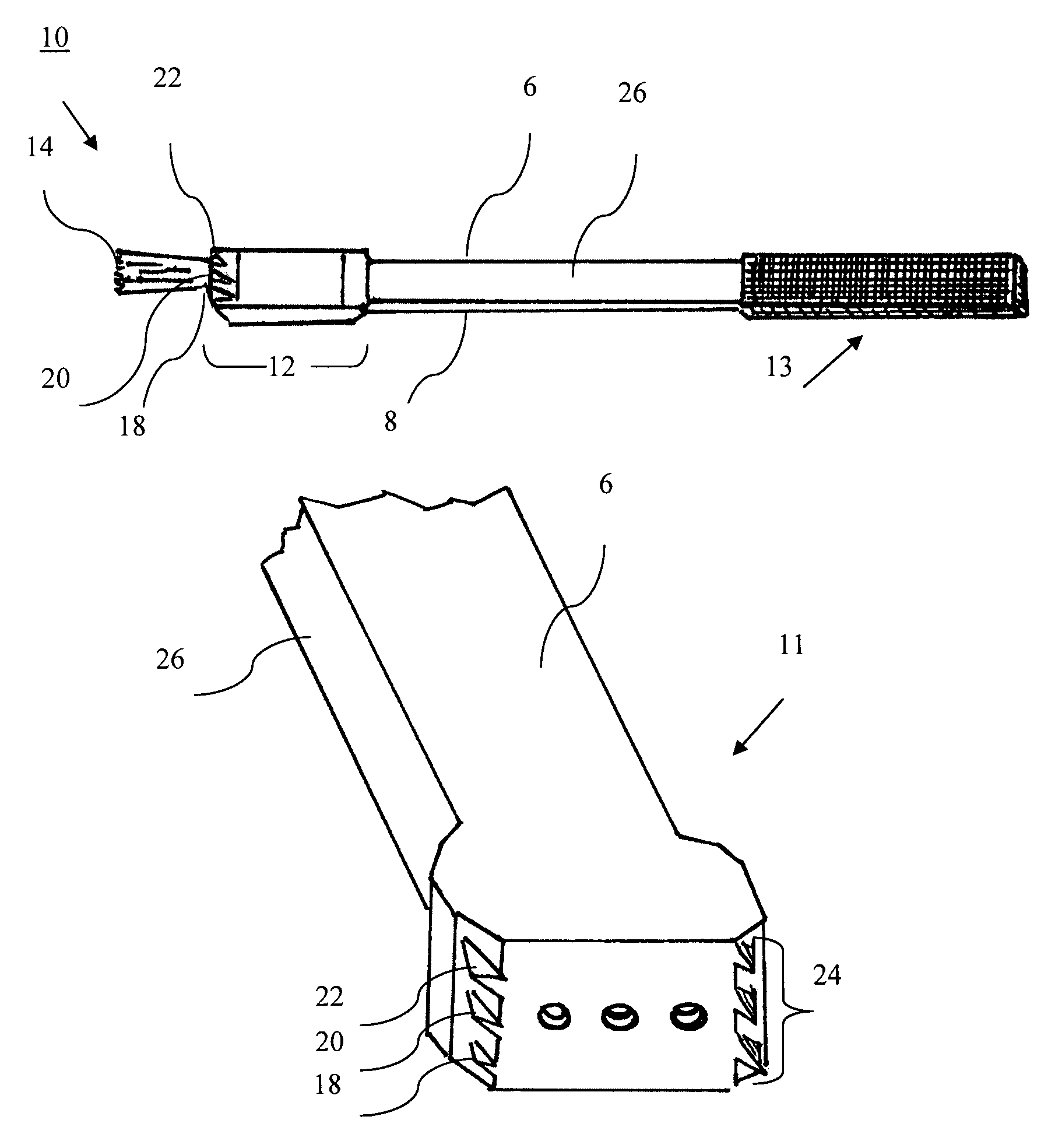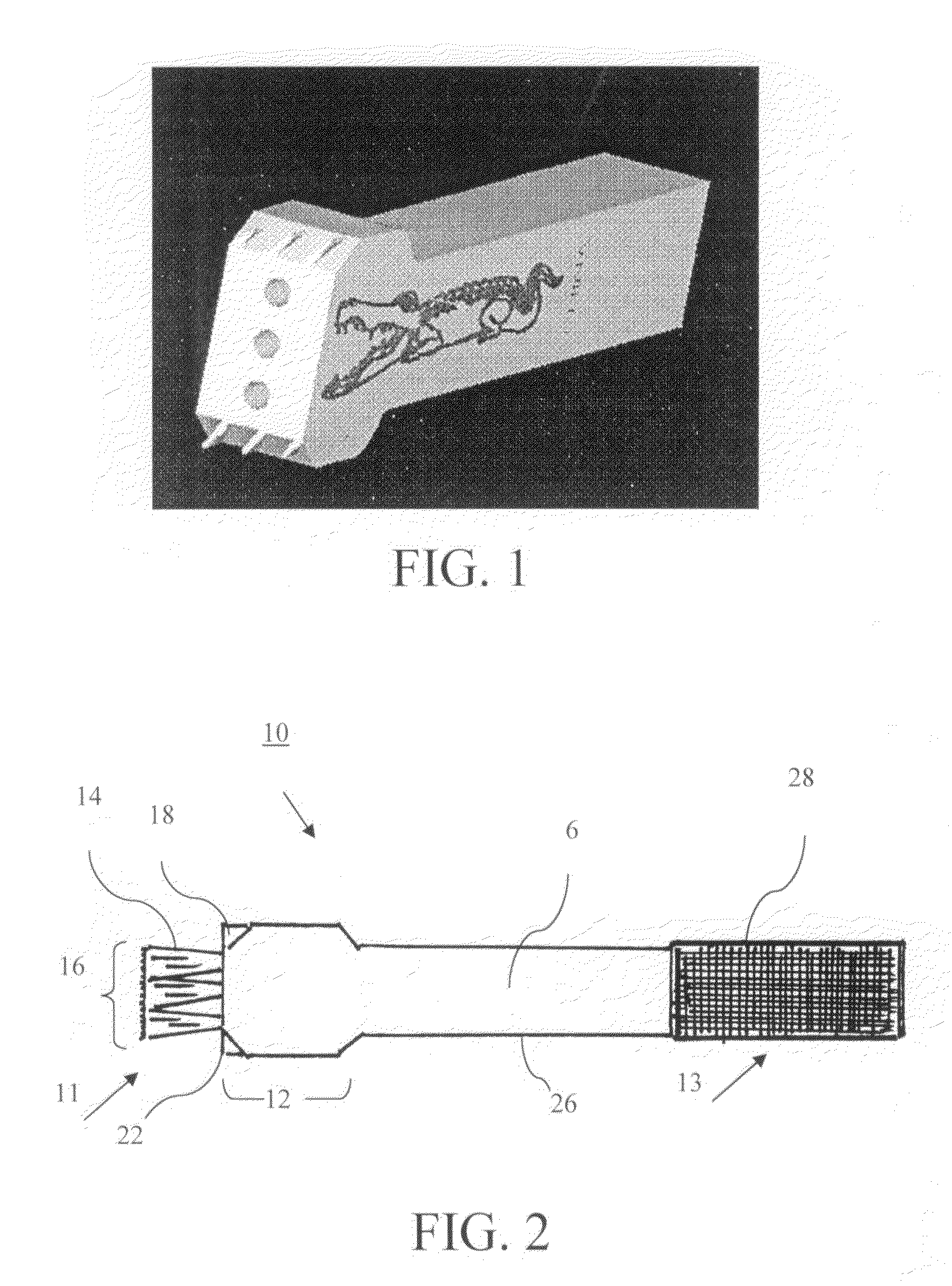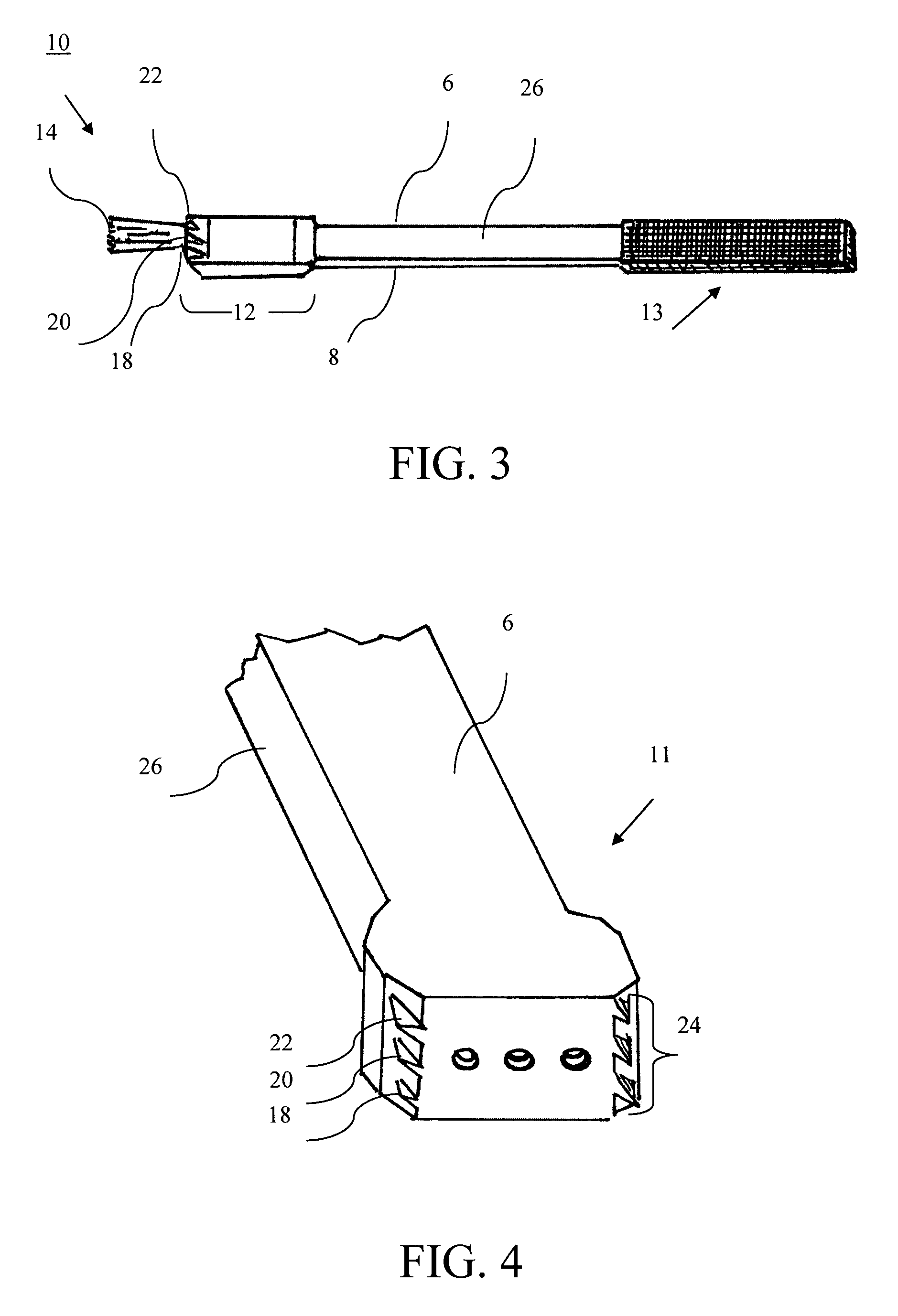Cleaning and sanitizing device for razors
a cleaning and sanitizing device technology, applied in the direction of carpet cleaners, cleaning machines, cleaning equipment, etc., can solve the problems of difficult to remove accumulation of debris, and achieve the effect of reducing bacterial growth, reducing bacterial growth, and removing as much moistur
- Summary
- Abstract
- Description
- Claims
- Application Information
AI Technical Summary
Benefits of technology
Problems solved by technology
Method used
Image
Examples
example 1
A Study of the Reduction in Bacterial Growth on the Blades of a Razor after Using the Device of the Subject Invention.
[0034]An unblinded, comparative and controlled study was carried out, to show how the use of the device of the subject invention can reduce the gross bacterial contamination present on the blade(s) of a razor immediately after use and at 24 hours. Six sterile Blood Agar plates were labeled as follows:[0035]1. Control—No invention use, Time: 0:00 (FIG. 1)[0036]2. Control—No invention use, Time: 24:00 (FIG. 2)[0037]3. Invention Use, Time: 0:00 (FIG. 3)[0038]4. Invention Use, Time: 24:00 (FIG. 4)[0039]5. Invention Use, Alcohol Applied to Invention Tail, Time: 0:00 (FIG. 5)[0040]6. Invention Use, Alcohol Applied to Invention Tail, Time: 24:00 (FIG. 6)
Terminology:
“control” means simple and usual means of cleaning debris from a razor after use. The head of the razor blade was run under hot water (temperature-100 degrees Fahrenheit), of full faucet pressure, for a total of ...
example 2
Measurement of Debris Reduction on Razor Head
[0057]A comparative study of actual weight of residual shaving debris on razor head after typical use as compared with application of the New Invention
Method:
[0058]1. Control Razor: One day old beard was shaved in the usual fashion with a double-edged razor. It was run under hot water for 5 seconds (routine cleaning) then, allowed to air-dry for 24 hours, to remove moisture variance. See FIG. 15, left-side razor.[0059]2. Cleaned Razor: One day old beard was shaved in the usual fashion with a double-edged razor. It was run under hot water for 5 seconds in combination with the use of the New Invention, then allowed to air-dry for 24 hours. See FIG. 15, right-side razor.
[0060]Debris from the razor heads of each were scraped into Mettler balance weighing vessels, which had been previously weighed for tare.
[0061]The results are as follows: weights in micrograms (μg)
[0062]
1.Control (subject inventionTotal weight:651.23 (μg)was not used)tare:535...
PUM
 Login to View More
Login to View More Abstract
Description
Claims
Application Information
 Login to View More
Login to View More - R&D
- Intellectual Property
- Life Sciences
- Materials
- Tech Scout
- Unparalleled Data Quality
- Higher Quality Content
- 60% Fewer Hallucinations
Browse by: Latest US Patents, China's latest patents, Technical Efficacy Thesaurus, Application Domain, Technology Topic, Popular Technical Reports.
© 2025 PatSnap. All rights reserved.Legal|Privacy policy|Modern Slavery Act Transparency Statement|Sitemap|About US| Contact US: help@patsnap.com



